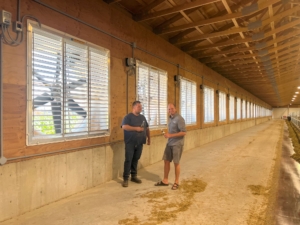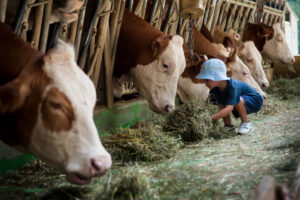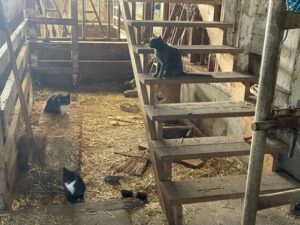
Farm Life
Beer and Dairy – Synergistic Drinking Buddies
Who doesn’t love a cold beer after a long day on the farm? As great as a cold beer is, depending on who you ask,

Who doesn’t love a cold beer after a long day on the farm? As great as a cold beer is, depending on who you ask,

Growing up on a Dairy farm is a unique and rewarding experience that will shape a person’s life in so many ways. The days often

In the world of agriculture and farming, there’s a silent hero that often goes unnoticed—the barn cat. The working class of the feline world, these